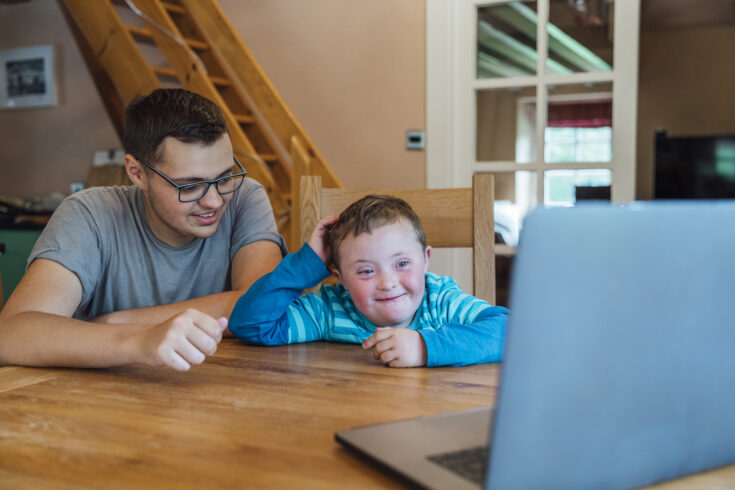With 13.6 million unpaid carers in the UK, research is investigating the impact COVID-19 has had on carers, while new initiatives are providing vital support.
New carer-impact research
Researchers from Queen’s University Belfast are investigating the impact of COVID-19 on carers of family members with profound and multiple learning disabilities (PMLD).
Research has found that the pandemic is having an acute impact on those with care and support needs, and has been particularly challenging for carers of family members with PMLD.
Increased pressures for carers
Even before the pandemic, carers often spent significant amounts of time caring for a relative. COVID-19 has significantly increased those pressures.
The Economic and Social Research Council (ESRC) funded project will explore the experiences of carers across the UK and Ireland.
The aim of the research is to:
- make recommendations about service provision
- co-create a support programme with carers, academics and the voluntary sector.
Dr Mark Linden, from the School of Nursing and Midwifery at Queen’s, said:
The COVID-19 pandemic has been difficult and disruptive for us all, but carers of family members with PMLD have been severely negatively impacted.
This research is an important opportunity to work with partners across the UK and Ireland to highlight the concerns of these groups and will help to ensure that carers of people with PMLD and their experiences during this pandemic are heard.
New initiative for carer support
A company is employing technology to mobilise the insights, wisdom and experience of the UK’s 13.6 million unpaid carers, providing them much-needed support.
Mobilise is a free online platform which aims to harness the knowledge and support of carers across the UK.
Reaching more people
Funded by UK Research and Innovation’s (UKRI) Healthy Ageing Challenge, Mobilise aims to ensure nobody who looks after a family member, neighbour or friend has to do so on their own, particularly during the COVID-19.
Co-founder James Townsend said:
Our mission is to mobilise the knowledge, wisdom and expertise of these people who have been there before, so others can learn from their mistakes as well as their successes.
Many people do not identify themselves as carers. They may just say, ‘I am looking after my mum’. But if you’re applying for a blue badge, regularly looking for clinical advice or helping elderly people with eating and drinking, then you might be a carer.
A system of carer services
The Mobilise platform offers a wide-ranging ecosystem of services for carers, including:
- daily group meetings called Virtual Cuppas
- traditional 1:1 Coaching
- automated email course of advice.
Vital insights and policy studies
With help from the UKRI funding, Mobilise was able to develop a new insights tool, Mobilise Moments.
James explained:
Mobilise Moments gathers insights on the daily lives of 40,000 carers to help inform local authorities’ strategic planning.
It makes the most from voluntary care and enables statutory services to focus on those most in need of social care support.
Mobilise is also producing studies for policy makers and healthcare specialists by collating and analysing these insights. This includes:
- a study to capture the experiences of carers throughout lockdown
- a report on mental health support for carers in the UK
- insights about access to vaccines to provide to the Department of Health and Social Care.
Helping even more carers
Mobilise is now looking to grow to help even more carers and is due to close a further private investment round to make that happen.
James said:
Mobilise is planning to use further funding from the Healthy Ageing Challenge to evidence the impact the shift to online support (as a result of COVID-19) has had on local authorities and others.
Also we want to show how this can be applied to future commissioning strategies.
Further information
The Queen’s University Belfast research includes partners from across the UK and Ireland
This project is led by Dr Mark Linden, and includes academics from:
- Queen’s University
- Trinity College Dublin
- University of Glasgow
- University of South Wales
- University of Sheffield.
The project also includes voluntary partners, such as:
- PAMIS in Scotland
- Sunderland People First
- Brain Injury Matters
- All Wales Forum of Parents and Carers
- Irish Society for Autism.
Last updated: 8 July 2024

